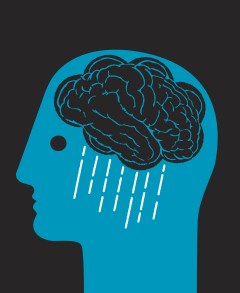
getty
In Washington D.C., as with most states, there are major disconnects between the public mental health system and the military and Veterans Administration systems.
The Substance Abuse and Mental Health Services Administration (SAMHSA) is trying to bridge those gaps, through their Policy Academy. The goal is to go state by state, understand where the gaps are, and position resources to meet those gaps. I have written of the Policy Academy in other posts, but I want to amplify on it here because I believe it is so important.
Some eight years ago, SAMSHA held major conferences where they outlined the problems of returning veterans. Lots of DoD and VA officials “admiring the problem.” Preaching to the choir. Platitudes.
I am much more encouraged by SAMHSA’s new state-by-state approach.
In Washington D.C., we are getting very granular. The major objectives are: 1) health care; 2) education; 3) better housing: 4) economic stability, including jobs and benefits; and 5) criminal justice.
Many veterans come to Washington D.C., for all sorts of reasons. They range from seeking benefits from the VA, to anger at the VA, to being in love with the first lady, to wanting to reform government.
There are opportunities for improvement in the health care system. These focus on better coordination and collaboration between the public mental health and health systems and the veteran’s health administration. The goal is to get the veteran into care, in either system.
I would like to focus on education here, which has gotten some limited attention in the media. Many veterans are going to school on the GI Bill, but cannot focus on school, because they have PTSD, TBI (mild traumatic brain injury), or simply have been kicking in doors in Baghdad’s Sadr City.
Solutions: A few schools have veteran support groups. Many more need to do this. Another area for improvement is training college counselors in working with vets. The school for Deployment Psychology is a leader in this arena. In D.C., we are helping to train providers.
The criminal justice system also has many potential opportunities for improvement. Police officers in D.C. and elsewhere are asking for more training in working with vets with PTSD and TBI. During our regular Crisis Intervention Officer Training for local police officers we have a module on veterans. There are potential new trainings from Community Oriented Policing Services (COPS) that seek to do just that on an expanded basis.
About 10% of those incarcerated are veterans. There are a variety of interventions that can help those in the criminal justice system, including veteran’s courts, with mentorship from other veterans.
In fact, there is a move afoot to make the Uniform Code of Military Justice more sympathetic to battle-scarred veterans. Stay tuned for more on that.


